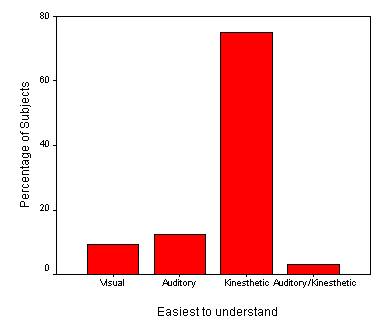| 2003 |

|
YEAR BOOK |
Limerick Institute of Technology
|
Representational systems and software development
|

This study carries out exploratory research in the areas of:
|
� Neuro-linguistic programming
� Software life-cycle � Problems that arise during requirements elicitation � Communications theory in learning environments. |
The hypotheses that were formulated for this particular research project were the following:
H1 - A representational systems method of communication can be used as an alternative approach to Analyst/User communication.
H2 - There are benefits to using the representational systems approach when teaching systems analysis in the educational context.
H3 - Existing knowledge in the research problem domain can be expanded by developing the representational systems communication method.
Many issues can arise from ineffective communication during the requirements analysis phase of the software lifecycle. This study employs representational systems theories to improve communication between analysts and users during requirements analysis. Using the concept of representational systems from Neuro-linguistic Programming, users are tested for their preferred representational system. They are then given three different formats of the same system. Each format is connected to a different representational system. The users complete a questionnaire relating to their understanding of the information that they studied. Their responses are analysed, with particular attention being paid to the relation between the information format they found easiest to understand and the representational system they prefer to use.
With new theories emerging in education, more traditional approaches to learning and intelligence are being contested, and people are beginning to favour the theories that treat people as individuals, each with their own type of intelligence and learning behaviour. This study looked at representational systems as an aid to teaching people by using different representations of information, which are suited to the learner's particular needs. For example, it was found that almost eighty-two percent of the group studied found their representational system format the easiest of the formats to understand.
Contact: Tara Kelly or Terry Twomey, Department of Information Technology, Limerick Institute of Technology, Moylish Park, Limerick;
E-mail: [email protected]